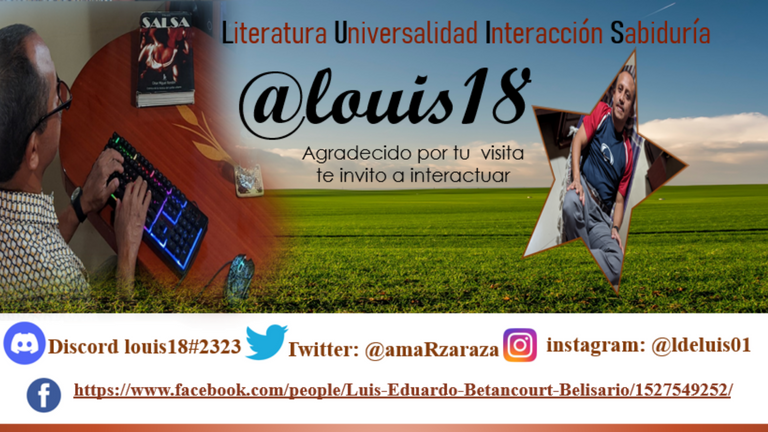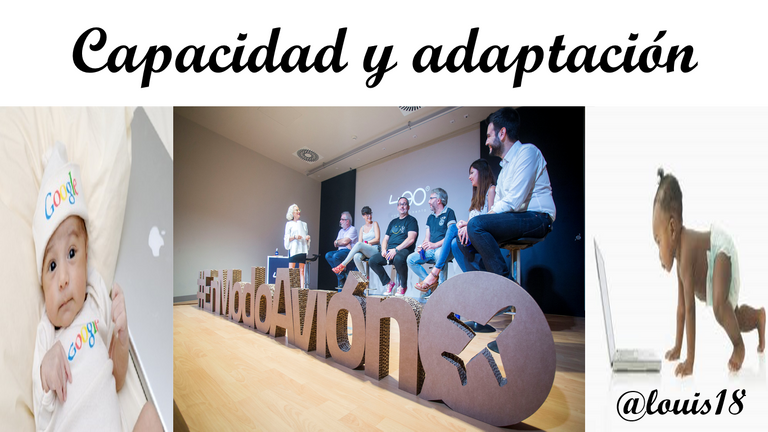
Hola amigos de Hive, les comparto un post que surgió de esos momentos de meditación propios de la madurez que se alcanzan en la vida, y luego de leer un poco he llegado a una conclusión que seguramente es un lugar común, pero me gustaria compartirla con todos ustedes: Los años nos permiten hacer reflexiones desde lo alto de las montañas de la edad. Me encuentro en la cima de éstas y puedo mirar como ha pasado el tiempo y este trajo consigo un nuevo mundo, una nueva cosmovisión.

Sin darnos cuenta el orbe ha cambiado, nuestras relaciones interpersonales de hoy no son las mismas de ayer. Esto ha ocurrido por muchas variables, entre las mas importantes podemos destacar rapidamente el aspecto económico, que nos ha alejado de sitios de esparcimiento y reuniones colectivas que habitualmente visitabamos y hacíamos comunidad, apuntalado por el factor pandemía que ha sido un freno al abrazo, al apretón de manos, al encuentro entre amigos y familiares de forma colectiva, en fin, a la fraternidad muy propia de nosotros los humanos.
Leyendo un poco, porque la lectura y el uso de la Web se han convertido, para la mayoria de las personas, en nuestros primeros aliados en estos momentos de aislamiento, me llamó la atencion el uso de unos términos o códigos que se estan utilizando actualmente en las redes sociales. Son los llamados nativos e inmigrantes digitales. Los primeros, segun mis lecturas en la web, los ubican cronológicamente a los nacidos desde 1980 a 1994, los segundos son los nacidos desde 1995 al 2000 . Tambien les colocan otras acepciones como: generación Y, generación Red, generación @, generacón nube, generación pulgar o generación multimedia.
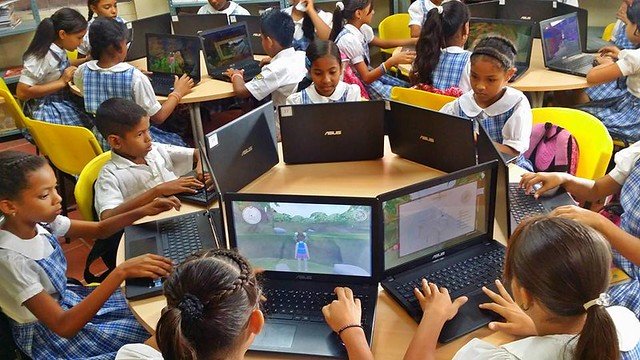
Según esta nueva estructura taxonómica se abre una nueva brecha, entre los que conducen y conocen las TICs de forma innata y los que llegamos nadando, con viento en contra y en una balsa contruida artesanalmente por nosostros mismos, apurados, jadeantes y empujados por la necesidad de poder desenvolvernos aunque sea medianamente, en nuestra vida cotidiana que ahora se maneja en su mayoria, tecnológicamente.

Los nativos digitales han sido catalogados como un nuevo ser humano, con unas caracteristicas, necesidades, expectativas e intereses totalmente distintas a los que entramos en la categoria de inmigrantes digitales. A estos últimos nos ha costado un poco adaptarnos a este nuevo enfoque social, donde resaltan las pantallas y todo se realiza traves de dispositivos de diferentes formas y tamaños, con aplicaciones que dan respuestas y frecuentemente resuelven asuntos de cualquier tipo en cuestion segudos, lo que anteriormente era considerado un trámite que llevaba horas, días y hasta años.
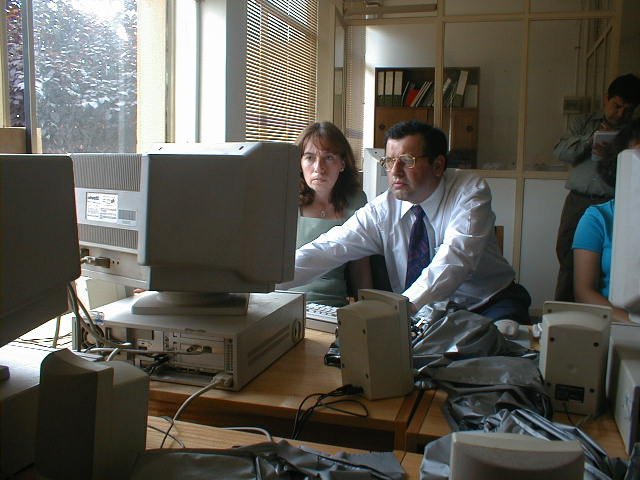
Los nativos digitales se sienten muy comodos en este nuevo mundo paralelo que se ha creado, lo entienden de una manera distinta y es considerada un complemento o extención de su día a día. Las computadoras , Tablets, audifonos y teléfonos inteligentes, constituyen una extención de este nuevo ser humano, el nativo digital, agregándole que ahora tienen nuevos códigos de comunicación y manejos de idiomas lo cual realizan de una forma muy natural, porque son originarios de esta nueva era, la cual tiene su propia dinámica. Fuente
Entre los nativos y los inmigrantes digitales se ha abierto una nueva brecha, como dije anteriormente, y ésta se observa no solo en el manejo intuitivo que tienen los nativos digitales de todo lo tecnológico que nos rodea globalmente, que en muchos casos es abrumador para los inmigrantes tecnológicos, sino que la brecha tambien se nota en el acceso a los equipos y suministradores de señal, que en algunos lugares es de fácil adquisición y en otros no.
En este sentido, el servicio de internet es esencial para que estos hechos se den de forma eficaz y eficiente, de no ser así también existe una categoria que los enmarca, y son los que estan en la denominada pobreza digital. Asimismo se han categorizado y entran en juego otras clases llamadas inforricos e infopobres, términos que se explican por sí solos, y esto dependen del nivel de acceso y las destrezas y habilidades en el manejo de las TICs.
A los inmigrantes digitales solo nos queda tratar de aprender a manejarnos en esta intersticialidad o espacio que se ha abierto entre estos dos momentos de la evolucion de la vida, al menos los dos que yo he conocido, que son el artesanal y ahora el omnipresente tecnológico-digital. Creo que no debemos sorprendernos ni mucho menos exaltarnos por la actitud de la juventud, solo debemos tratar de entender que la humanidad cambió y lo hizo ante nuestros ojos muy rapidamente. Ahora estamos en presencia de un nuevo contrato de relaciones interpersonales, que está en desarrollo y va a seguir profundizándose, y para sobrevivir a esta gran ola hay que sumergirse en ella, o quedaremos varados en una pequeña isla sin interaccion alguna.

Cuando observamos a nuestros hijos y nietos sumergidos en este océano tecnológico, que representa el verdadero lugar donde se desenvuelven abiertamente, debemos tratar de acompañarlos sin sugerencias profundas, redireccionamientos imperativos o aportes distraccionistas que pertenecen al mundo donde nosostros los inmigrantes digitales nos formamos, el pretérito, el viejo cosmo, y que a ellos realmente les parecen lejanas, ajenas o anticuadas nuestras sugerencias y opiniones, porque realmente el mundo cambió.
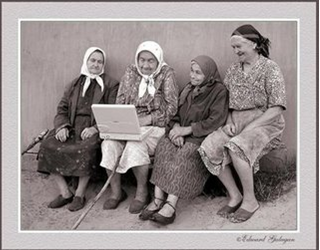
Fuente
Debemos comprender que es Ahí donde los nativos digitales socializan, se hacen populares, lo que se ha convertido en un reforzador sobre todo en los adolescentes, tambíen es donde expresan aspectos intimos, se transforman en seres noctámbulos, demuestran sentimientos, intercambian puntos de vista de su vida cotidiana, juegan, se recrean y hasta se reproducen razgos de la llamada intimidad digital, que a nosotros como padres o abuelos nos ruboriza, pero debemos entender que la tecnologia para nosotros es una herramienta, pero para los jovenes o nativos digitales, es su hogar, viven en él. Fuente

Las imágenes y edición de la portada corresponden a las siguientes:

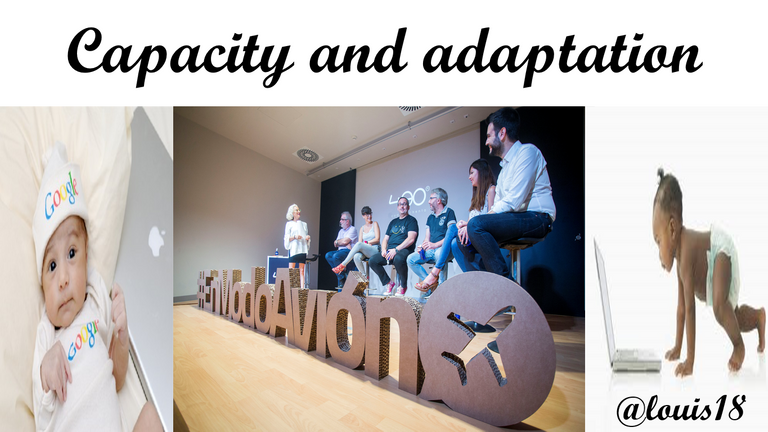
Hello friends of Hive, I share a post that arose from those moments of meditation typical of maturity that are reached in life, and after reading a little I have come to a conclusion that is surely a common place, but I would like to share it with all of you: The years allow us to make reflections from the top of the mountains of age. I am at the top of these and I can see how time has passed and it brought with it a new world, a new worldview.

Without realizing it, the world has changed, our interpersonal relationships today are not the same as yesterday. This has occurred due to many variables, among the most important we can quickly highlight the economic aspect, which has taken us away from recreational places and collective meetings that we usually visit and form a community, underpinned by the pandemic factor that has been a brake on hugging, handshake, to the encounter between friends and family collectively, in short, to the fraternity very typical of us humans.
Reading a bit, because reading and the use of the Web have become, for most of the people, our first allies in these moments of isolation, the use of some terms or codes that are currently being used caught my attention. on social media. They are the so-called digital natives and immigrants. The first, according to my readings on the web, chronologically place those born from 1980 to 1994, the second are those born from 1995 to 2000. They are also given other meanings such as: generation Y, generation Network, generation @, generation cloud, generation thumb or generation multimedia.

According to this new taxonomic structure, a new gap opens, between those who drive and know ICTs innately and those who arrive swimming, with a headwind and in a raft built by hand by ourselves, in a hurry, panting and driven by necessity. to be able to develop even moderately, in our daily life that is now handled mostly, technologically.

Digital natives have been classified as a new human being, with characteristics, needs, expectations and interests that are totally different from those that fall under the category of digital immigrants. For the latter, it has been a bit difficult for us to adapt to this new social approach, where the screens stand out and everything is done through devices of different shapes and sizes, with applications that provide answers and frequently resolve issues of any kind in a row, which previously it was considered a procedure that took hours, days and even years.

Digital natives feel very comfortable in this new parallel world that has been created, they understand it in a different way and it is considered a complement or extension of their day-to-day life. Computers, Tablets, headphones and smartphones constitute an extension of this new human being, the digital native, adding that they now have new communication codes and language management which they do in a very natural way, because they are natives of this new era, which has its own dynamic. Source
A new gap has opened between digital natives and immigrants, as I said before, and this is observed not only in the intuitive handling that digital natives have of everything that surrounds us globally, which in many cases is overwhelming for the digital natives. technological immigrants, but the gap is also noticeable in access to equipment and signal providers, which in some places is easy to acquire and in others not.
In this sense, the internet service is essential for these events to occur effectively and efficiently, otherwise there is also a category that frames them, and they are those who are in the so-called digital poverty. Likewise, other classes called informatics and info-poor have been categorized and come into play, terms that are self-explanatory, and this depends on the level of access and skills and abilities in the management of ICTs.
We digital immigrants can only try to learn to handle ourselves in this interstitiality or space that has opened between these two moments in the evolution of life, at least the two that I have known, which are the artisanal and now the omnipresent technological . I believe that we should not be surprised, much less exalted by the attitude of youth, we should only try to understand that humanity changed and it did so before our eyes very quickly. Now we are in the presence of a new interpersonal relationship contract, which is in development and will continue to deepen, and to survive this great wave we must submerge in it, or we will be stranded on a small island without any interaction.

When we observe our children and grandchildren submerged in this technological ocean, which represents the true place where they operate openly, we must try to accompany them without deep suggestions, imperative redirections or distractionistic contributions that belong to the world where we digital immigrants are formed, the past , the old cosmo, and that our suggestions and opinions really seem distant, foreign or outdated to them, because the world really changed.

Source
We must understand that it is there where digital natives socialize, become popular, which has become a reinforcer especially in adolescents, it is also where they express intimate aspects, become night owls, show feelings, exchange points of view of Their daily life, they play, recreate and even reproduce traits of the so-called digital intimacy, which makes us as parents blush, but we must understand that technology is a tool for us, but for young people or digital natives, it is their home , they live in it. Source

The images and edition of the cover correspond to the following:
Source
Source
Source
edited
